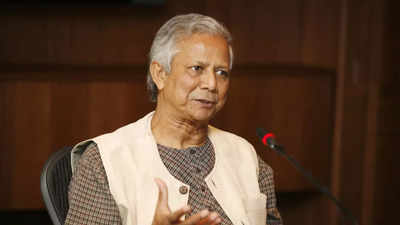Bangladesh’s interim government has cancelled a planned training programme for 50 judges and judicial officers in India, amidst the ongoing diplomatic spat between Dhaka and New Delhi.
The Bangladesh’s law ministry confirmed the decision on Sunday, saying only that a previous notification permitting the programme had been revoked. Reports from The Daily Star noted that the decision to revoke the programme aligns with the Bangladesh Supreme Court’s directives, though no official explanation has been provided.
The programme, scheduled to take place at India’s National Judicial Academy and State Judicial Academy in Madhya Pradesh from 10 February, would have been fully funded by the Indian government.
Selected participants included district and sessions judges, additional district judges, and officers of equivalent rank. The cancellation came shortly after state-run Bangladesh Sangbad Sangstha had publicised the initiative, and no specific reasons were disclosed by authorities.
Relations between the two nations have been tense following political upheavals in Bangladesh. Former Prime Minister Sheikh Hasina, ousted by a student-led protest in August last year, fled to India after her Awami League’s 16-year rule ended.
Since the interim government led by Muhammad Yunus assumed power, there have been rising concerns about minority rights in Bangladesh, further complicating ties with India.
The Hindu community has reported increasing violence under the Yunus administration, including attacks on places of worship. India has raised its concerns with Bangladesh, particularly after the arrest of Hindu monk Chinmoy Krishna Das on sedition charges.
Das, a former ISKCON leader, was accused of desecrating the national flag, an allegation his defence lawyers vehemently denied. Protests following his arrest led to violent clashes, resulting in a lawyer’s death and amplifying tensions within the country.
On January 2, Das’ bail application was rejected by a court in Bangladesh’s Chattogram.
“The hearing continued for some 30 minutes when (Metropolitan Sessions) Judge Mohammad Saiful Islam heard both the prosecution and the defence lawyers and then rejected his (Das’) bail petition,” a court official said, as reported by news agency PTI.
People are the main stakeholders in Bangladesh-India relations: MEA
The ministry of external affairs reaffirmed India’s commitment to supporting a “democratic, stable, peaceful, progressive, and inclusive Bangladesh.” Spokesperson Randhir Jaiswal during a press conference on Friday said that the key stakeholders in the relationship between New Delhi and Dhaka are the people of both nations.
Jaiswal said that this approach was emphasised during Foreign Secretary Vikram Misri’s visit to Dhaka, where he reiterated India’s support for Bangladesh’s democratic values. He also stressed that the two countries’ relationship should be built on mutual trust, respect, and sensitivity to each other’s concerns.
“He (Misri) also emphasized that people are the main stakeholders in Bangladesh-India relations and noted that India’s development cooperation and multi-faceted engagements with Bangladesh, including in areas of trade, connectivity and other capacity-building areas, are all geared towards the benefit of the people of Bangladesh. So, you know, that has been our approach”, Jaiswal said.
The spokesperson noted that India’s cooperation with Bangladesh in trade, connectivity, and capacity building aims to benefit the Bangladeshi people, reinforcing India’s consistent approach to strengthening bilateral ties.




